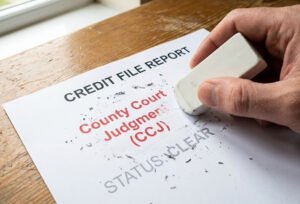Looking to make it easier to manage your debt but not sure which option is right for you? Read on for our quick guide to IVAs vs. debt consolidation
What is an IVA?
If you’re finding it tough to keep up with your debt payments, or you’ve already started falling behind, an IVA could help.
IVA is short for Individual Voluntary Arrangement and it’s a formal debt management solution. That means the agreement made between you and your creditors will be legally binding.
How does an IVA work?
To get started, you’ll work with an Insolvency Practitioner to make a deal with your creditors – those representing 75% of your total debt must agree to the terms for your IVA to start.
Once you enter an IVA, you’ll pay the agreed monthly payment towards your debt for a period that usually lasts between five and six years.
The payment amount will be based on your affordability and anything outstanding once your IVA comes to an end will be written off.
During your IVA, your creditors won’t be allowed to contact you and you won’t need to pay any interest on your debts. On the other hand, you’ll need to ask permission if you want to take out any credit and the IVA could impact your credit score for up to six years.
Most debts can be included in an IVA including utility debt, payday loans, store cards, personal loans, and credit cards but you won’t be able to use this debt management option if you’ve fallen behind with your child support payments, student loan, court fines, or TV licence arrears.
What is debt consolidation?
Debt consolidation can help make your debts easier to manage if you have multiple payments to juggle.
You’ll typically take out a new loan and use that money to pay off all your existing debts, so you’re left with one monthly payment.
While debt consolidation won’t reduce the amount you owe, it can help you stay on stop of your payments and reduce the likelihood that you’ll miss a payment accidentally.
If your credit score has improved over time or interest rates have improved, you may also be able to secure a lower rate of interest than some of your existing debts and save money over time. You may be able to secure a personal loan with a lower APR than a credit card, for example.
Even so, it’s worth keeping in mind that you will still need to be pay interest on your debts, and you could even face penalty charges for repaying some other loans back early.
What are the main differences between an IVA and debt consolidation?
If you’re trying to choose between an IVA or debt consolidation, there are several differences that might impact your decision:
- Interest – with an IVA, you won’t have to continue paying interest on your debts, with debt consolidation, interest will still apply.
- Credit score – your credit score may dip when you first take out a debt consolidation loan but will recover once you start making payments on time. With an IVA, your credit score will be impacted for up to six years.
- Contact – during an IVA, your creditors aren’t allowed to contact or chase you. You won’t have this potential benefit with debt consolidation.
- Debt reduction – with a debt consolidation loan, the amount you owe will remain the same and you’ll need to pay off the full balance plus interest. With an IVA, your monthly payment will be based on how much you can afford and any outstanding balance once the IVA ends will be written off.
An IVA might be the right option for you if…
- You’re struggling to make your debt repayments
- You’re being chased by creditors for late payments
- You owe more than £10,000
- You don’t need to take out a new credit agreement for the next six years
Debt consolidation might be the right option for you if…
- You can afford your debt repayments but have multiple payments to manage
- You have a good credit score
- You have debts with no early repayment charges
- You might need to apply for new forms of credit soon
If you’re looking for support with your debt management, our friendly team of experts is here to help. Give us a call on 0161 8260 585 or send a message here






